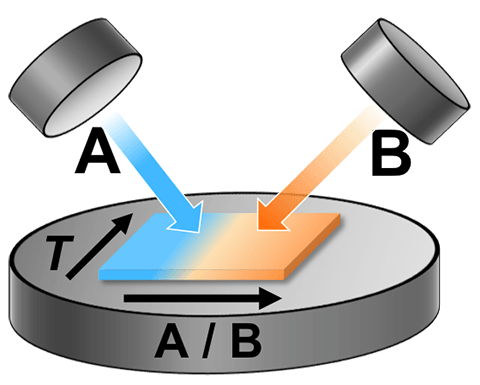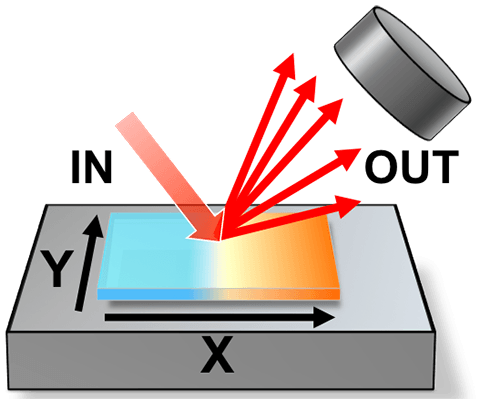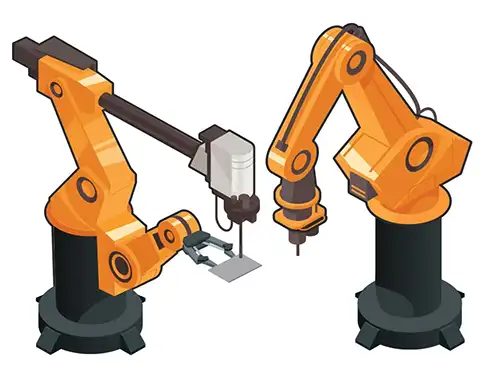Materials Synthesis and Characterization Methods
For materials synthesis and characterization, NLR materials discovery and design researchers use a high-throughput experimental approach based on combinatorial deposition, spatially resolved characterization, and automated data analysis capabilities, followed by targeted experiments.


Combinatorial Depositions
We have several physical vapor deposition chambers, and for each we can create intentional, well-controlled gradients in chemical composition, substrate temperature, film thickness, and other synthesis parameters across the substrate, resulting in a material library.

Materials Characterization
Each of our measurement instruments has an automatically controlled X-Y motion stage that enables mapping of the materials libraries as a function of position and, hence, composition/temperature and other gradients that the material libraries have.

Automated Data Analysis
Enormous amounts of data are created by combinatorial synthesis and spatially resolved characterization of the material libraries. So we have developed both local and network-based analysis capabilities to turn these data into knowledge.

Targeted Thin-Film Depositions
Once a few candidate materials are identified using combinatorial synthesis, spatially resolved characterization, and automated data analysis, the most promising candidates are studied using a more conventional targeted experimental approach.

Autonomous Experimentation
To further our materials discovery goals, we are developing autonomous experimentation capabilities, including autonomous synthesis, autonomous characterization, and artificial intelligence-enhanced software.

Bulk Materials Synthesis
We have capabilities to synthesize bulk materials using solid-state and hydrothermal techniques, including for both air-stable and air-sensitive materials, such as nitrides.
Contact
Share
Last Updated Dec. 6, 2025
